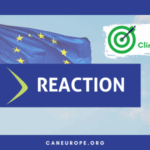Belgrade, Brussels, Podgorica, Pristina, Sarajevo, Skopje, Tirana, Zagreb, 8 November 2016 – Coal continues to dominate the energy systems of the Western Balkan countries aspiring to become EU members, while the uptake of renewable energy has been extremely slow. These are the main conclusions of a new scorecard report launched today by a group of NGOs (1), ahead of the publication of the European Commission’s annual enlargement reports scheduled for tomorrow.
The report is available here: http://bit.ly/2fsZFTM
The scorecard, covering seven countries (2) and comparing data from 2010 and 2014/2015, aims to complement the European Commission’s annual enlargement reports to be launched tomorrow.
Unlike the enlargement reports, the scorecards are looking beyond policy into real changes in the energy systems.
Key findings include:
- Kosovo is the most coal-dependent country in the region, with 97% of electricity from coal in 2014. Macedonia and Serbia come second and third, with 69.5% and 64.8% of their electricity coming from coal respectively. For comparison, the EU generated 26.3% of its electricity from coal in 2014.
- Only a tiny fraction of the renewable energy potential has been used. Albania, Kosovo and Montenegro have no solar nor wind capacity installed.
- Per capita CO2 emissions from fuel combustion decreased between 2010-2014 in all countries except for Bosnia and Herzegovina and Albania. However, these emission cuts are not a result of targeted policies but rather of catastrophic climate change impacts. In Serbia, severe floods in 2014 reduced the amount of energy produced from coal.
“If current trends continue, and while these countries continue to negotiate on their accession to the EU with the European Commission, their poor record on climate action and reducing coal use, is likely to become a liability issue for EU citizens” – Dragana Mileusnic of Climate Action Network (CAN) Europe said.
“The European Commission must ramp up its efforts to bring the region closer to the EU. It should call for an ambitious climate policy in the region, while providing financial support for the transformation” – she added.
The challenge now is to prevent further setbacks such as building new fossil fuel infrastructure, which would not only increase pollution but would also take up time and money that could be spent on demand-side energy efficiency, grid improvements and renewable energy development.
“It is disappointing to see that in spite of high interest from investors, there is still hardly any wind and rooftop solar power in the region. Inappropriate national regulation reflects the lack of political will to ramp up energy sources that could still be increased in time to meet the 2020 targets” – concluded Sonja Risteka of Analytika, Macedonia.
ENDS
Contacts:
Ana Ranković
SEE SEP Network Coordinator
E-mail: Ana-Fractal@seechangenet.org
Mob:+381 63 180 33 33
Dragana Mileusnic
Energy Policy Coordinator for Southeast Europe at Climate Action Network Europe
E-mail: dragana@caneurope.org
Mob: +32 471 438 442
Notes for the editors:
(1) South East Europe Sustainable Energy Policy (SEE SEP) is a project with 18 CSO partners from across the region (Albania, Bosnia and Herzegovina, Croatia, Kosovo*, Macedonia**, Montenegro and Serbia) and the EU. The SEE SEP project aims to empower CSOs and citizens to better influence policy and practice towards a fairer, cleaner and safer energy future in SEE. The report is supported by the following groups:
Analytica (Macedonia)
ATRC (Kosovo)
CEKOR (Serbia)
CPI (Bosnia and Herzegovina)
CZZS (Bosnia and Herzegovina)
DOOR (Croatia)
EDEN (Albania)
Ekolevizja (Albania)
Eko-Svest (Macedonia)
Forum for Freedom in Education (Croatia)
Fractal (Serbia)
Front 21/42 (Macedonia)
Green Home (Montenegro)
MANS (Montenegro)
(2) Albania, Bosnia and Herzegovina, Croatia, Kosovo*, Macedonia**, Montenegro and Serbia.
* According to the UN, Kosovo is “under the United Nations Interim Administration Mission in Kosovo (UNMIK) established pursuant to Security Council Resolution 1244.”
** According to the UN, the official name for Macedonia is “The former Yugoslav Republic of Macedonia”.



